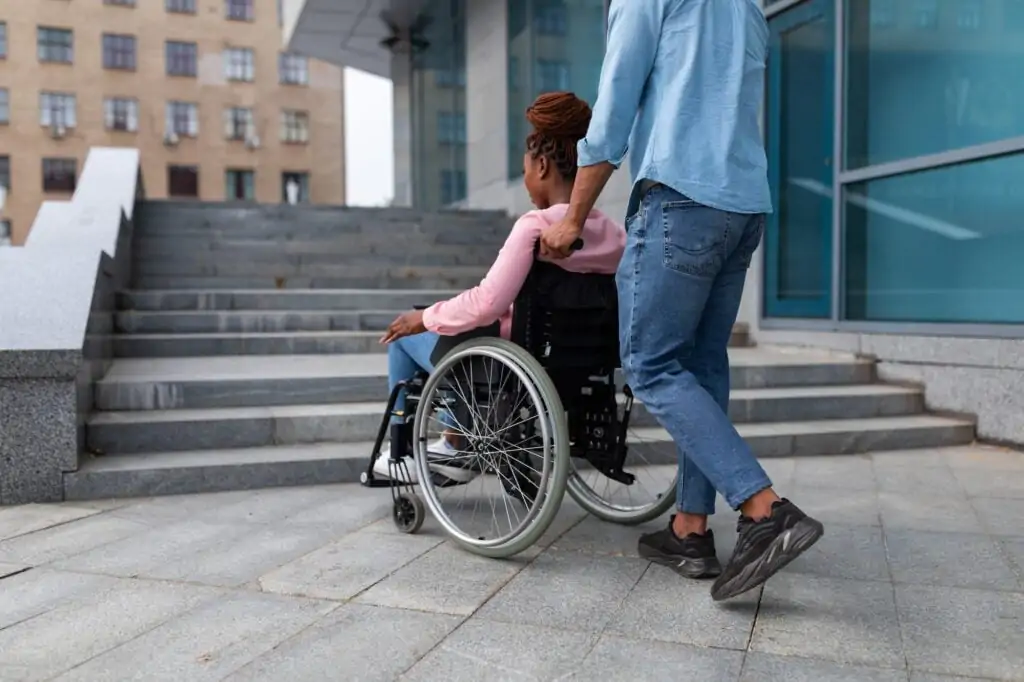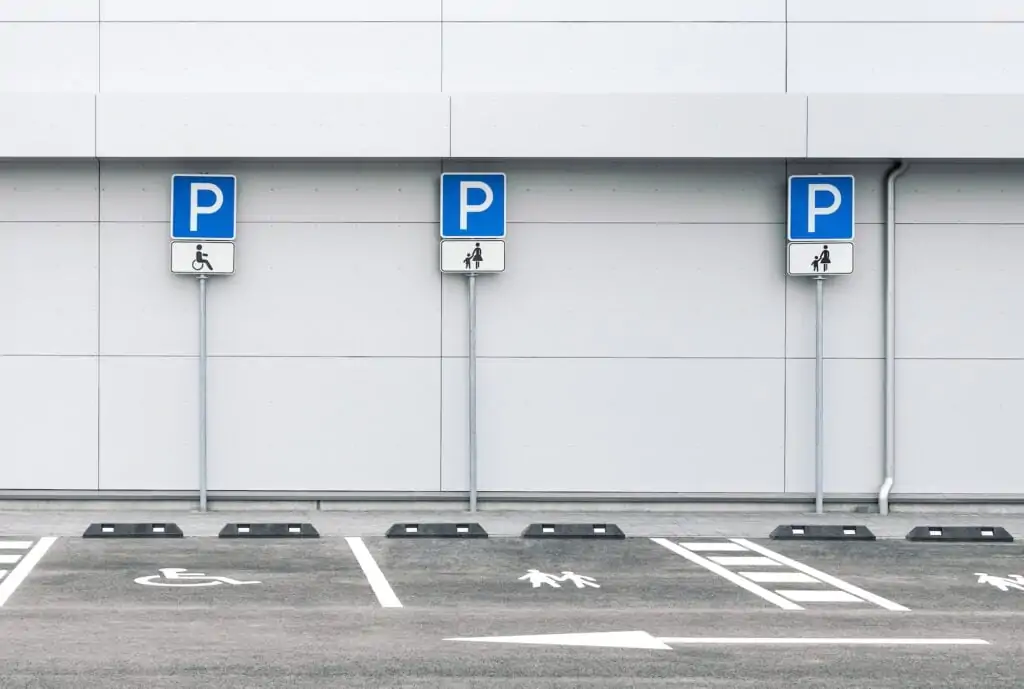
Hoteliers in the Crosshairs: The Rising Tide of ADA Lawsuits!
Table of Contents
ToggleThe Americans with Disabilities Act (ADA) is a federal law that prohibits discrimination against individuals with disabilities in all areas of public life, including jobs, schools, transportation, and all public and private places that are open to the general public. The purpose of the law is to ensure that people with disabilities have the same rights and opportunities as everyone else. However, the application of this law in the hospitality industry, particularly in hotels, has led to a surge in lawsuits, many of which focus on the accessibility of loading and unloading zones in parking lots.
The Rising Trend of ADA Lawsuits
In recent years, there has been a significant increase in ADA lawsuits against businesses, including hotels. These lawsuits often focus on physical barriers that could impede access for people with disabilities. For instance, a hotel might face a lawsuit if its parking lot does not have adequate loading and unloading zones for guests with disabilities.
The Role of ‘ADA Testers’

A significant number of these lawsuits are initiated by individuals known as ‘ADA testers’. These are individuals who visit businesses to test their compliance with ADA regulations. If they find any violations, they may file a lawsuit against the business. The U.S. Supreme Court recently granted certiorari in a case involving an ADA tester, marking a significant development in this area of law.
The Impact on Small Businesses and Hoteliers
While the intention behind ADA is noble and necessary, the rising trend of lawsuits can have a devastating impact on small businesses, including independent hotels and small chains. The cost of legal defense and the potential for high damages can put significant financial strain on these businesses. In some cases, businesses are choosing to settle these lawsuits out of court to avoid the high costs associated with litigation.
Notable ADA Lawsuits Involving Hotels
Several recent ADA lawsuits involving hotels have gained media attention due to their implications for the industry. These cases often revolve around the accessibility of facilities and services, including parking lots.

The U.S. Supreme Court Case Involving a Disability Rights Activist
In a landmark case, the U.S. Supreme Court agreed to hear a lawsuit involving a disability rights activist and a hotel. The activist, who has filed thousands of ADA lawsuits, claimed that the hotel’s parking lot did not comply with ADA regulations. The outcome of this case could have significant implications for future ADA lawsuits.
The Wells Hotel Case
In another notable case, the U.S. Supreme Court agreed to hear a disability rights lawsuit involving a hotel in Wells. The case focuses on the hotel’s alleged failure to provide adequate access for individuals with disabilities, particularly in its loading and unloading zones.
The Call for ADA Lawsuit Reforms
Given the rising number of ADA lawsuits and the impact on businesses, there have been calls for reforms to prevent predatory lawsuits. Advocacy groups like Californians Against Predatory Lawsuits are pushing for changes to the law to protect businesses from frivolous lawsuits while still ensuring accessibility for individuals with disabilities.
The Need for Clearer Guidelines
One of the key issues is the lack of clear guidelines for businesses to follow to ensure ADA compliance. For instance, the regulations around loading and unloading zones in parking lots are often unclear, leading to confusion and potential violations.

The Role of State and Federal Governments
Both state and federal governments have a role to play in implementing these reforms. At the state level, there is a need for laws that protect businesses from predatory lawsuits. At the federal level, clearer guidelines and regulations can help businesses ensure they are in compliance with ADA.
Navigating ADA Lawsuits as a Hotelier
For hoteliers, navigating ADA lawsuits can be challenging. However, there are steps that can be taken to manage this risk.
Understanding ADA Requirements
The first step is to understand the requirements of the ADA, particularly as they relate to the hospitality industry. This includes understanding the requirements for accessible parking, including loading and unloading zones.
Conducting Regular Audits
Regular audits can help identify potential ADA violations before they result in a lawsuit. These audits should be conducted by professionals who are familiar with ADA regulations and can provide actionable recommendations.
Seeking Legal Advice
If a lawsuit is filed, it is important to seek legal advice immediately. An attorney who specializes in ADA law can provide guidance on the best course of action, whether that is fighting the lawsuit in court or seeking a settlement. Contact us at Guest Ban for more information
Conclusion
ADA lawsuits are a growing concern for hoteliers, particularly those related to loading and unloading zones in parking lots. However, by understanding the law, conducting regular audits, and seeking legal advice when necessary, hoteliers can navigate these challenges and ensure their facilities are accessible to all guests.
Knowledge Base
Frequently asked questions
The Americans with Disabilities Act (ADA) is a federal law that prohibits discrimination against individuals with disabilities in all areas of public life.
An ADA lawsuit is a legal case filed against a business for alleged violations of the ADA. These lawsuits often focus on physical barriers that could impede access for people with disabilities.
An ADA tester is an individual who visits businesses to test their compliance with ADA regulations. If they find any violations, they may file a lawsuit against the business.
Hoteliers can navigate ADA lawsuits by understanding the requirements of the ADA, conducting regular audits to identify potential violations, and seeking legal advice if a lawsuit is filed.
Some notable ADA lawsuits involving hotels include a U.S. Supreme Court case involving a disability rights activist and a hotel, and a case involving a hotel in Wells that the Supreme Court agreed to hear.
Potential reforms to ADA lawsuit regulations include clearer guidelines for businesses, protections against predatory lawsuits, and both state and federal laws to help businesses ensure compliance with ADA.
